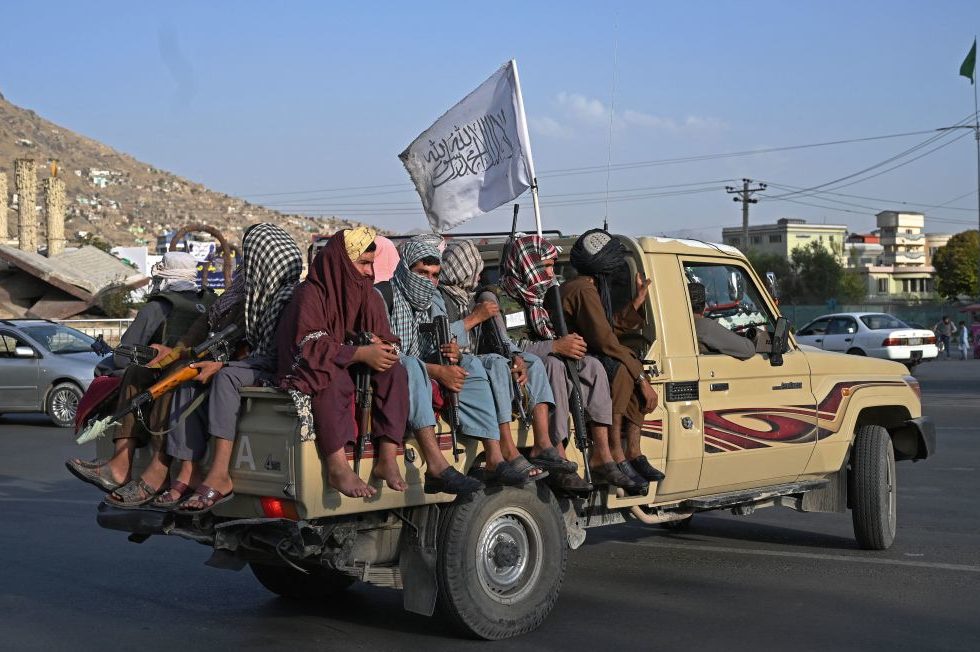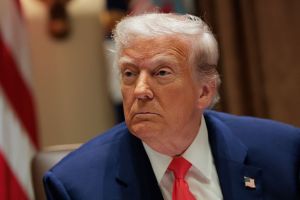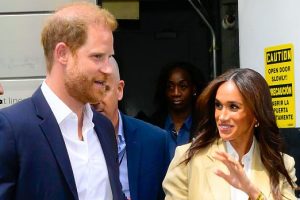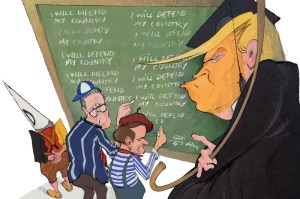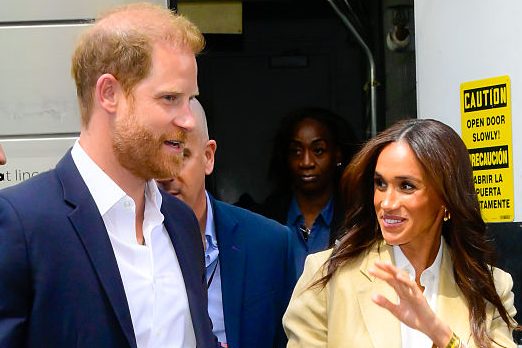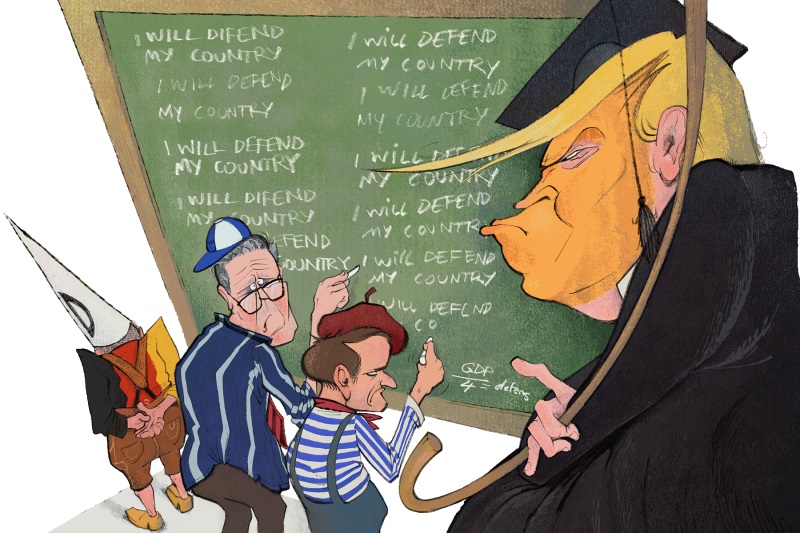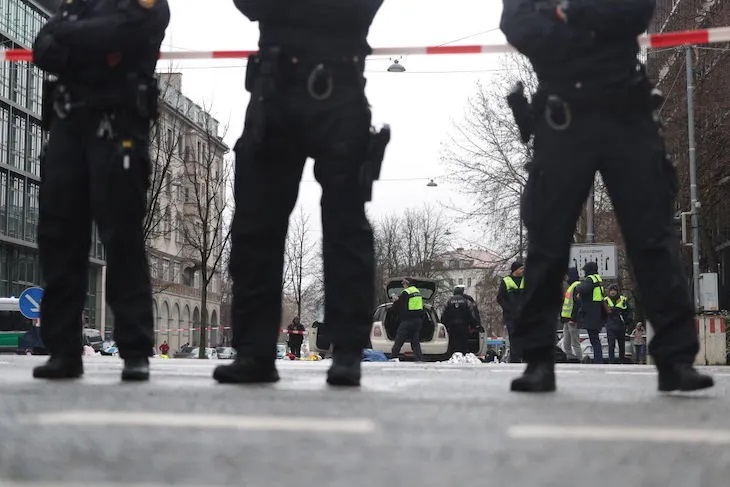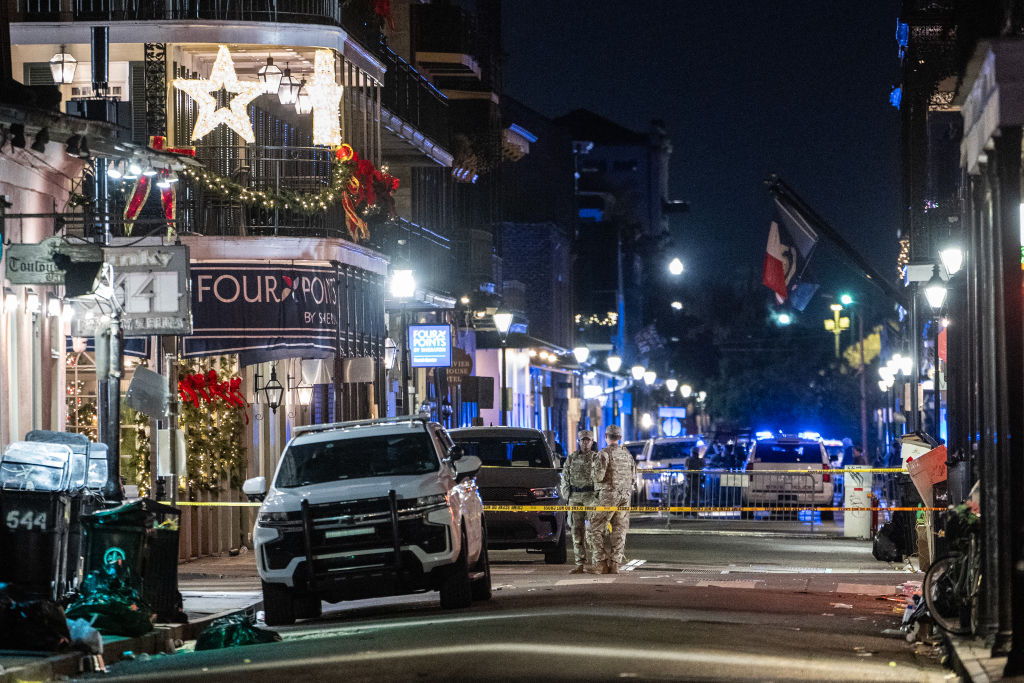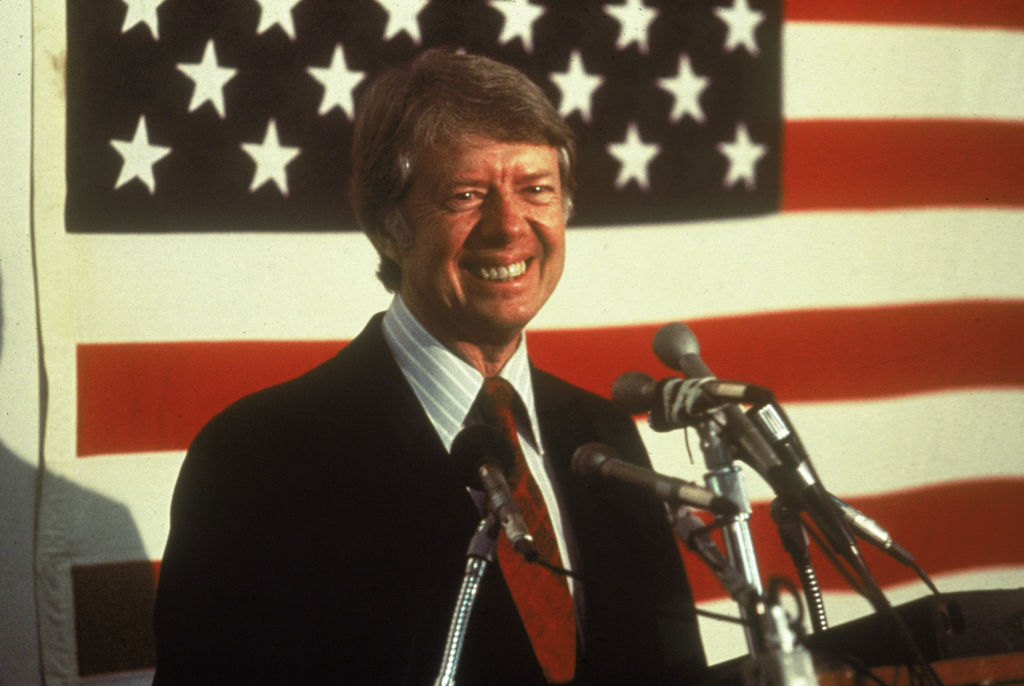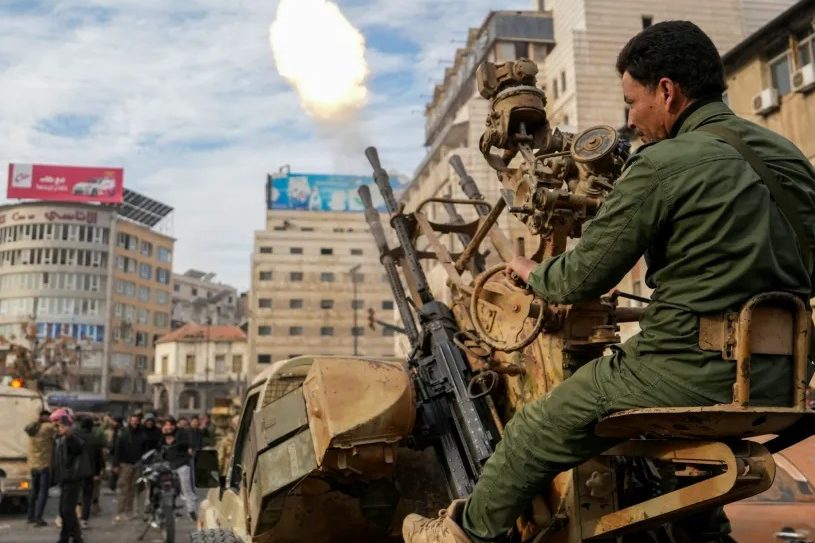When the Taliban ruled Afghanistan for five years in the late 1990s, the key power lay in a modest room in a house in Kandahar. There was just a simple iron bedstead and a box as furniture, and no door but a curtain separating it from the rest of the house. Sitting on rugs on the floor the Taliban founder Mullah Omar issued orders, made appointments and took money from the box. The ministries in Kabul operated on fiats issued from this room.
His successor as Emir, Haibatullah Akhunzada, does not enjoy the same unquestioning authority. He was known as a scholar and ideologue not a fighter, and emerged as a compromise leader in 2017 after Omar’s successor Mullah Mansour was killed by an American drone strike. Akhunzada has since promoted extreme violence. His enthusiasm for the tactic of suicide bombing is so intense that he is proud his own son was a ‘successful’ suicide bomber.
The Taliban talk of an Islamic Emirate to govern Afghanistan again, but it remains very unclear what that means. In the few sessions of actual talks that took place in the six months or so of the Doha peace process, Afghan government negotiators tried to get some sense of the shape of a Taliban-led Afghan emirate in the 21st century, but came away none the wiser.
So while the Taliban have run a successful system for a parallel state as a guerrilla organization — with several commissions under a leadership council, the most important being the military commission and the political commission — transferring this into a governing administration will not be easy.
The Taliban is really best seen as a movement bringing together several different factions and groups, some more involved in drug running and other criminal enterprises than others, and all drawing sustenance from the madrassas and other Islamic organizations in Pakistan as well as Pakistani military intelligence.
Abdul Ghani Baradar is likely to be the top public face of the movement, whatever title he is given. He was one of the founders of the Taliban, and an early advocate for negotiations.
Alongside him in the leadership structure as deputies of Akhunzada sit Mullah Omar’s son, Muhammad Yaqoob, and Sirajuddin Haqqani, the head of the Haqqani network. None of these three yet have a formal role in the new administration. But Haqqani’s uncle, Khalil Haqqani, who has a $5 million bounty on his head, has been appointed in charge of Kabul security. This will strike terror into the hearts of the population of the city, since the Haqqani network were responsible for the largest attacks that killed thousands of Kabul residents before the takeover.
The Haqqani network is also the most internationalist of the Taliban groups, with links to al-Qaeda, and to groups like Jaish-e-Muhammad used by Pakistan to carry out attacks in India. So the public prominence of Khalil Haqqani, who spoke in a central mosque in Kabul on the first Friday after the takeover, sends a signal that despite the moderate tones of spokespeople designed to build international confidence, the Taliban could once again use Afghanistan to harbor international terrorists.
There is talk of an inclusive government, and Daud Sultanzoy, the mayor of Kabul, was initially asked to stay in his post. Since he was the spokesman for President Ashraf Ghani’s reelection campaign in 2019, and his wife, Zohra Yusuf, was Miss Afghanistan in 1972, he is not a natural partner for the Taliban. He immediately ordered the populist move of removing blast walls from Kabul, which have disfigured the city and clogged traffic. But he has already been sidelined by a Taliban appointee, so the shape of any inclusive appointments remains unknown.
Some other ministerial appointments have already been made, with many of the key roles going to Helmandis, among them Gul Agha at Finance, Sadr Ibrahim at Interior and Abdul Qayyum Zakir at Defense, all veterans from the 1990s. When the Taliban were in power first time round, ministers relied on non-Taliban deputies or senior civil servants to make things work. General Karimi, a Sandhurst graduate, who had been in a senior staff role in the Ministry of Defense in the Russian period and during the mujahedin years that followed, was also called in by the Taliban in 1997 since he knew how to make the administration work. ‘When I started teaching them,’ he told me, ‘they could not learn.’ He fled across the border to Pakistan as soon as he could.
This time the job will be far harder. Afghanistan is a more complex country, and the Taliban are spread thinly, lacking the support of normal civilian policing, and in some disarray after a speedy advance which surprised even them. Despite their swift move across the country earlier in the month, rolling up demoralized Afghan troops as they went, the Taliban do not govern with consent. The top layer of civil society activists have now been scattered across Europe and North America after terrifying journeys out, but beneath them are networks of people who know how to organize. Even if there are no elections, the Taliban might be held accountable from the bottom.
We know already the limitations on life that have been imposed. The movement’s spokesman, Zabiullah Mujahid, likely to be appointed minister of culture, has said women need to be accompanied by a male relative if they travel for three days from their home, and there will be no public music. (It is worth saying in passing that there have been rumors among journalists that there were many Zabiullah Mujahids. I interviewed him in person in 2007, and the latest spokesman is certainly different to the one I met.)
The Taliban have asked civil servants, although not women, to come to work, properly attired in loose shalwar kameez, with the trousers not too long. They are as obsessed by men’s dress and hair as what women wear.
On meeting civil servants, the Taliban are said to have asked, ‘Where’s the money?’ as if ministries were all run like Mullah Omar ran the Taliban 25 years ago.
The truth is that there is no money. Ajmal Ahmady, the governor of the Central Bank, who fled the weekend Kabul fell, calculated that just 0.1 percent of Afghanistan’s reserves were available in the country. And the US and IMF have frozen all new transfers in.
With banks rarely open, the economy has ground to a halt. This is the Taliban’s biggest immediate challenge. The UN World Food Program have launched an appeal to feed 14 million people, one third of the population. This may open opportunities, not to set conditions on humanitarian aid, but at least to begin a conversation with the Taliban about the responsibilities of a state to its own citizens and the wider world, with the carrot of unfreezing assets held abroad.
But this may be too hard to do in the disarray of western foreign policy. Despite contradictions like the appointment of Khalil Haqqani, the Taliban’s public relations offensive to present a moderate face is designed to win international recognition. A response calls for subtle and wise statecraft and a unified position by western countries — qualities that have been in short supply in the shameful debacle of the retreat from Kabul.
This article was originally published on The Spectator’s UK website.



